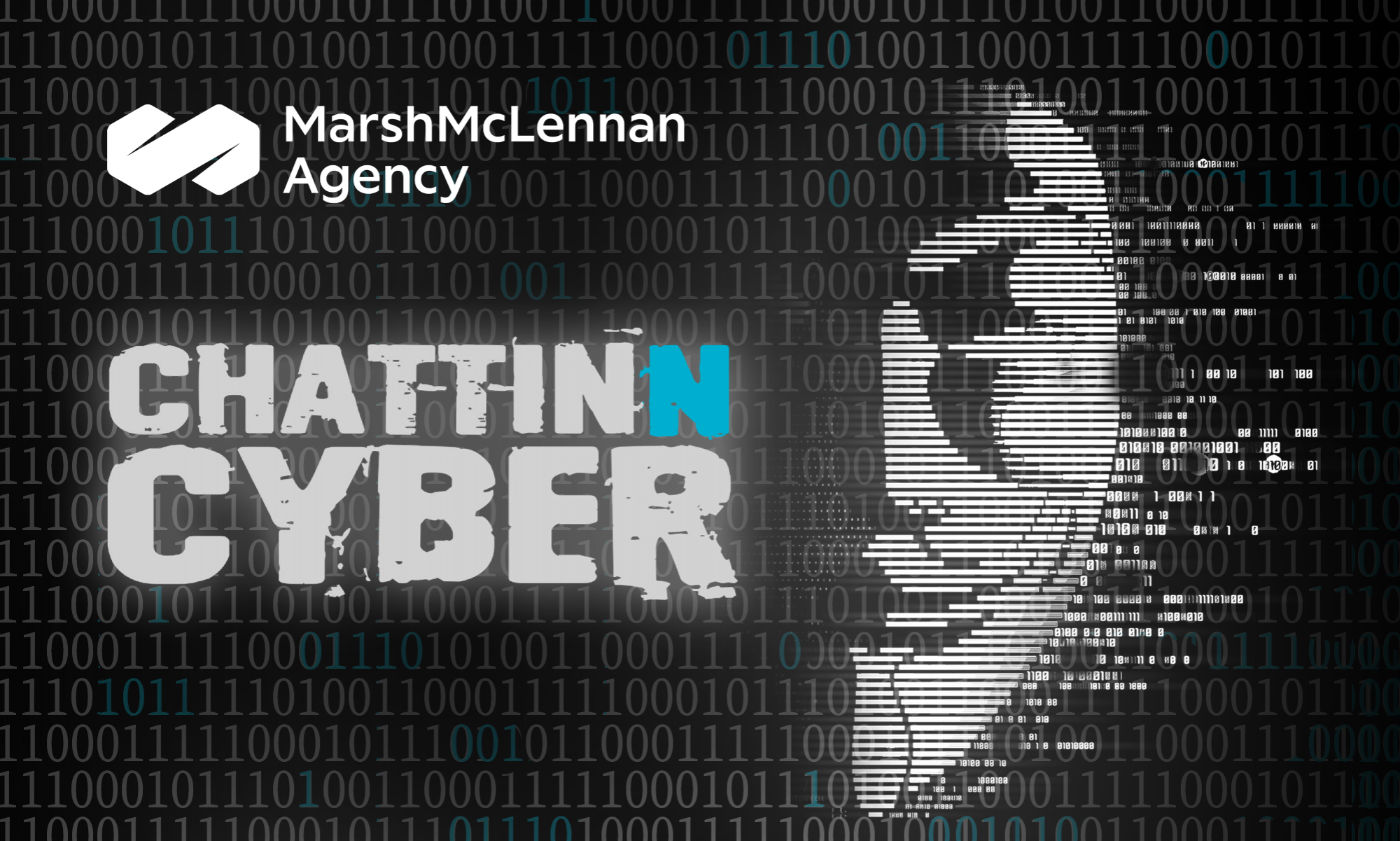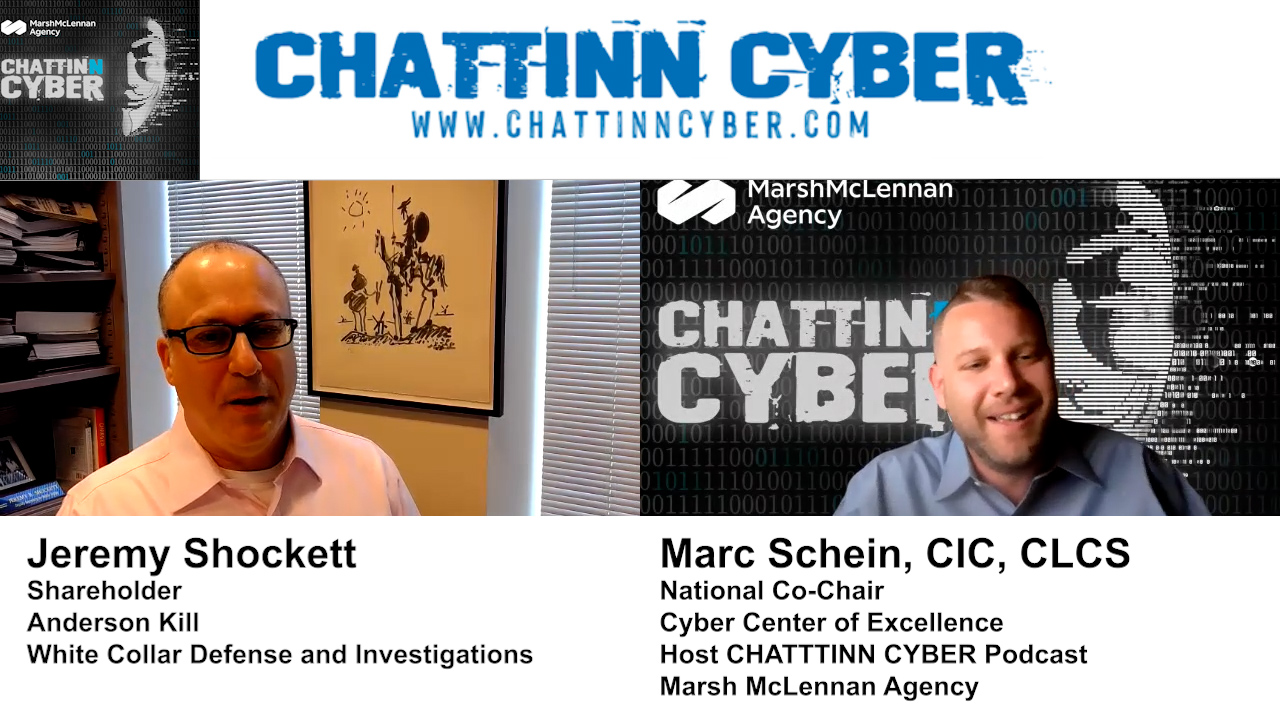Podcast: Play in new window | Download (14.8MB)
Subscribe: RSS
Summary
In this episode of Chattinn Cyber, Marc Schein is chattin’ with Jeremy Shockett, a prominent figure in cybersecurity and former co-chair of the New York State Cyber Security Advisory Board. Mark introduces Jeremy, emphasizing his extensive background, including his previous role as a prosecutor. This introduction sets the stage for a discussion centered on cybersecurity practices, particularly the significance of tabletop and red team exercises in enhancing organizational preparedness against cyber threats.
Jeremy shares his professional journey, detailing his transition from a 24-year career as a prosecutor to his appointment by the governor of New York as the deputy secretary for public safety, where he oversees cybersecurity initiatives. He elaborates on the role of the New York State Cyber Security Advisory Board, which comprises leaders from both public and private sectors. This board advises the governor on cybersecurity policies and plays a crucial role in responding to real-time threats, highlighting the collaborative effort required to address cybersecurity challenges effectively.
The discussion then delves into the differences between tabletop exercises and red team exercises. Jeremy explains that tabletop exercises are hypothetical scenarios where participants discuss responses to simulated threats, helping organizations identify decision-making processes and vulnerabilities. In contrast, red team exercises involve actual simulated attacks conducted by hired experts to test an organization’s defenses in real-time. This distinction underscores the unique purposes and methodologies of each exercise type, emphasizing their importance in a comprehensive cybersecurity strategy.
Jeremy offers practical recommendations for conducting these exercises, advising organizations to start with tabletop exercises to establish decision-making frameworks and identify vulnerabilities before progressing to red team exercises. He outlines key takeaways from both types of exercises, such as understanding strategic decision-making, clarifying roles and responsibilities, and evaluating communication strategies. For red team exercises, he highlights the importance of identifying specific vulnerabilities and assessing the effectiveness of social engineering defenses, providing valuable insights for organizations looking to strengthen their cybersecurity posture.
The conversation concludes with Jeremy sharing a memorable experience from a tabletop exercise where he played the role of the governor. He emphasizes the importance of asking critical questions that challenge the status quo and drive effective responses to threats. Reflecting on his career transition from Miami to New York, Jeremy expresses gratitude for the opportunities he has encountered, reinforcing the value of preparedness and collaboration in the ever-evolving field of cybersecurity.
Key Points
- Importance of Preparedness: The discussion emphasizes the necessity of conducting both tabletop and red team exercises to prepare organizations for potential cyber threats. These exercises help identify vulnerabilities and establish effective response strategies.
- Differences Between Exercise Types: Jeremy clearly distinguishes between tabletop exercises, which are discussion-based and focus on hypothetical scenarios, and red team exercises, which involve real-time simulated attacks. Understanding these differences is crucial for organizations to implement effective cybersecurity training.
- Sequential Approach to Exercises: Jeremy recommends that organizations conduct tabletop exercises first to develop decision-making processes and identify weaknesses before moving on to red team exercises. This sequential approach enhances the effectiveness of the overall cybersecurity strategy.
- Key Takeaways from Exercises: The conversation highlights critical insights gained from both types of exercises, such as understanding roles and responsibilities, evaluating communication strategies, and identifying specific vulnerabilities in defenses. These takeaways are essential for improving organizational resilience.
- Leadership and Inquiry: Jeremy shares a personal anecdote about a tabletop exercise where he played the role of the governor, underscoring the importance of leadership and asking challenging questions. This approach fosters a culture of inquiry that can lead to more effective crisis management and decision-making in cybersecurity scenarios.
Key Quotes
- “Part of public safety is cybersecurity. And part of that job is to be the co-chair of the Cybersecurity Advisory Board.”
- “A tabletop exercise is a hypothetical. It’s a pretend threat… you work through in a systematic way how the entity… is going to respond to it.”
- “My advice would be the tabletop exercise goes first. You get a real sense of who should be making decisions.”
- “You get to learn about your communication strategy… how do you deal with your clients? How do you deal with maybe the press?”
- “You can ask a question. Why can’t we fix this within an hour? The people of the state of New York need… fill in the blank.”
About Our Guest
Jeremy Shockett is a shareholder at Anderson Kill’s New York office, where he co-chairs the White Collar Defense group and is a member of the Corporate and Commercial Litigation practice. With extensive experience representing individuals and corporations before various federal agencies, including the DOJ and SEC, Jeremy has a strong background in pre-trial investigations and court proceedings. He previously served as the Deputy Secretary for Public Safety in New York, overseeing public safety and homeland security initiatives, and co-chaired the New York State Cybersecurity Advisory Board. His prior roles include Chief of the Trial Division at the Bronx County District Attorney’s Office, where he led over 200 prosecutors, and Special Assistant U.S. Attorney in the Organized Crime and Gangs Section. Jeremy is also an accomplished lecturer and trainer, having taught law enforcement and legal professionals both domestically and internationally. Outside of his professional pursuits, he has a passion for poker, which he enjoys discussing.
Follow Our Guest
About Our Host
National co-chair of the Cyber Center for Excellence, Marc Schein, CIC,CLCS is also a Risk Management Consultant at Marsh McLennan Agency. He assists clients by customizing comprehensive commercial insurance programs that minimize the burden of financial loss through cost effective transfer of risk. By conducting a Total Cost of Risk (TCoR) assessment, he can determine any gaps in coverage. As part of an effective risk management insurance team, Marc collaborates with senior risk consultants, certified insurance counselors, and expert underwriters to examine the adequacy of existing client programs and develop customized solutions to transfer risk, improve coverage and minimize premiums.
Follow Our Host

